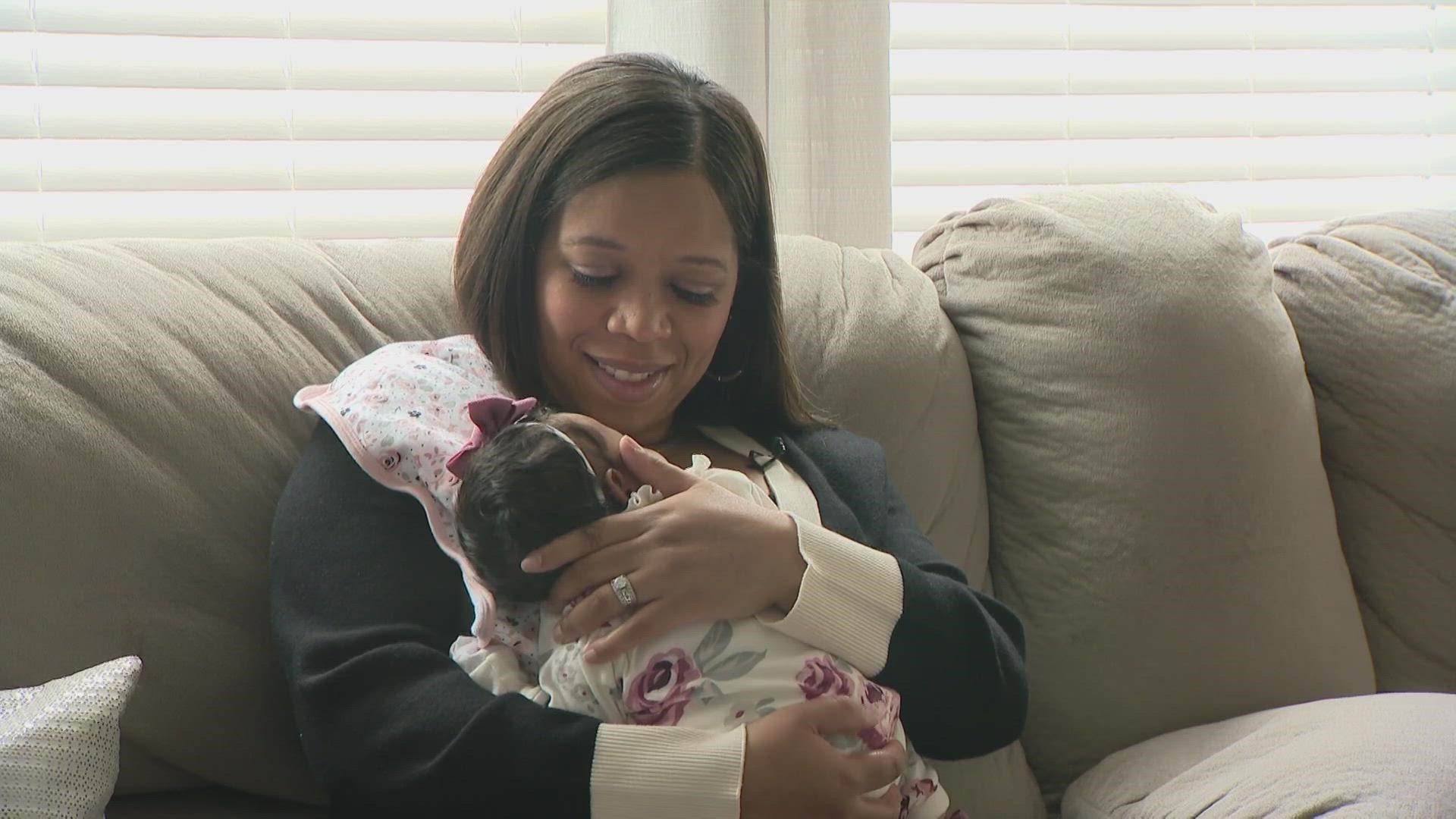INDIANAPOLIS — Those who hope to become pregnant and deliver a healthy baby know that uterine fibroids may cause complications. Uterine fibroids are benign tumors, and their size, number and location vary. Nearly 25% of Black women between 18 and 30 have fibroids, compared to 6% of white women. For Black women, the incidence of uterine fibroids increases to 60% by age 35.
Ta'Mella Ferron, 45, was first diagnosed with uterine fibroids in her 20s. Her doctor offered a hysterectomy as treatment, but she sought a second opinion and had a myomectomy in 2003 to remove her fibroids.
"In the back of my mind you think, 'Am I gonna be able to have children?'" Ferron said.
More than a decade later her fibroids returned, and she sought a solution with Dr. Maram Said at Ascension St. Vincent.
"I had some rather large ones. I don't really remember the size per se, but I know that they had to be removed in order for me to have a successful pregnancy," Ferron said.
Said kept Ferron's uterus intact by performing a daVinci-assisted laparoscopic myomectomy in 2019.
"We ended up doing the approach of removing fibroids individually and then re-stitching the muscle with a strong suture and allowed it to heal," Said said.
Ferron and her husband successfully got pregnant twice but lost both to miscarriage. A third pregnancy led to the successful delivery of a baby girl in 2023.
"It was really nice and gratifying to her, and for me to see," Said said. "We held a baby in there, and we got it to term – no NICU required."
Baby London was born Jan. 12.
"She was six pounds, eight ounces, 19 inches," Ferron said. "She looks just like her father. She's just brought so much joy to my life and to my family life. There are so many people that you just wouldn't even imagine that are so happy for us."
Ferron has a strong faith and trusted God to answer her prayers for parenthood. It is what she wants for others too.
"Go get screened. Get help so you can see what your options are. That way, if you are interested in having a child, you can still do that. Putting it off is not going to change things," Ferron said. "You still can have children in your 40s — I am a witness to that living proof."
What are fibroids?
Uterine fibroids can cause discomfort and may lead to complications such as a drop in red blood cells (anemia), which causes fatigue from heavy blood loss. Fibroids usually don't interfere with getting pregnant. It is possible that some fibroids could cause infertility, pregnancy loss and preterm delivery.
The most common signs and symptoms of uterine fibroids include:
- Heavy menstrual bleeding
- Menstrual periods lasting more than a week
- Pelvic pressure or pain
- Frequent urination
- Difficulty emptying the bladder
- Constipation
- Backache or leg pains
For Check Up 13 this month, Ascension St. Vincent Health providers will offer free cervical cancer screenings and an evaluation for risk of uterine fibroids, and free HPV and STD screening as age allows. Click here for more information.

